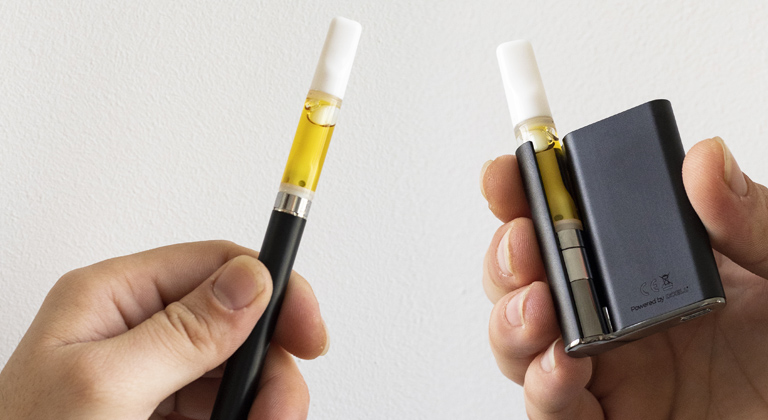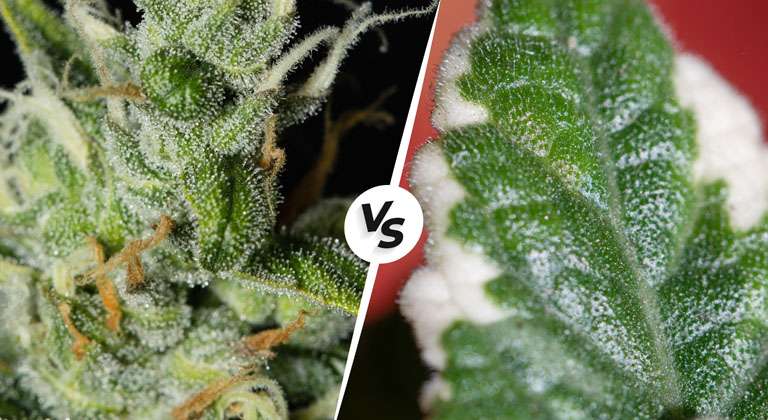We are very proud to announce that the Cali Terpenes website is now available in German as well. Every day, more and more people from around the world are discovering the potential of terpenes. That’s why we strive to provide quality information to everyone, and what better way to do it than by speaking the same language.
Today, we want to pay tribute to Germany by reviewing the latest advancements in its cannabis legislation, which have been quite significant!
Germany has become one of the leading states in cannabis regulation over the past 5 years. Let’s see why.
Germany, the largest medicinal cannabis market in Europe
A few years ago, we could not have suspected that Germany, a country that had maintained a conservative stance towards cannabis, would become the largest medicinal cannabis market in Europe.
Unlike other countries, such as the United States, Germany has adopted a less liberal strategy with greater state intervention, which has set the regulatory trend in Europe.
The first breakthrough in this regard occurred in 2017, with new legislation that paved the way for medicinal cannabis. In March of the same year, the drug law was modified for this purpose.
Initially, the law only allowed access for 1,000 patients, a number that exponentially increased in a very short period. Within just one year, there were already 40,000 patients with access to cannabis for therapeutic use.
Medicinal Cannabis in Germany
Access to medicinal cannabis in Germany is granted through a prescription from a doctor and dispensed in pharmacies.
Currently, the medicinal cannabis products available in the country are Sativex, Dronabinol, and Nabilone, as well as cannabis flowers primarily produced by Bedrocan, Tweed, and Aurora, foreign companies that until recently supplied the growing German market. In this regard, the government has started authorizing production licenses in the country, expanding the supply.
Here are some facts about the German medicinal cannabis market:
- In 2021, Germany imported 20,589 kilograms of medicinal cannabis for dispensation in pharmacies.
- The medicinal extracts sector in Germany is estimated to be worth 80 million euros.
- Currently, the market for medicinal flowers in Germany is estimated at around 13 tons per year, with an average price of 13 euros per gram.
- It is estimated that the German medical cannabis market has reached 300 million euros.
- In 2020, German health insurance companies reimbursed 165 million euros.
- Germany accounts for the majority of the European demand for flowers and bulk oil to supply an estimated 80,000 patients.
- Over the past five years, Germany has become a European leader, with nearly 200,000 patients accessing medicinal cannabis.
- Currently, two-thirds of insurers cover the cost of cannabis medications for patients.

Is Recreational Cannabis Legal in Germany?
The million-dollar question that the entire industry is asking is how and when Germany will give the green light to recreational cannabis. And it’s not without reason, as the country has shown a significant impact on the European and international markets, and the projections in this regard are promising.
This has been framed within a political landscape that hadn’t occurred for almost two decades, as the results of the October 2021 elections took a different turn.
An opportunity arose with the victory of pro-legalization parties like The Greens and the SPD, which were able to form a government without the Christian Democratic Union, a party that has clearly expressed its opposition to the legalization of cannabis for recreational use.
In December 2021, representatives of these parties made a declaration clearly stating their intention to regulate the recreational use of cannabis through a licensing system that certain establishments could obtain. The purpose of this would be to control product safety and quality, as well as to allow for an analysis of the social impact.
Challenges Germany faces in legalizing recreational cannabis
In October 2022, Germany’s Minister of Health, Karl Lauterbach, made a formal presentation on the legalization of cannabis to the federal cabinet. While this did not involve the formal introduction of legislation, it seemed to be a step forward in the German legalization process.
However, in that statement, the Minister faced the dreaded elephant in the room that all EU member states seeking to legalize cannabis encounter: the approval of the European Union’s legislation. Karl Lauterbach stated, “We will verify with the EU’s executive commission if the plan approved by the German government is in line with European laws, and legislation will proceed based on that if we indeed receive the green light.”

Pressure to push for cannabis legalization in Germany
Based on this premise, Germany was in a controversial position at the end of 2022, as it was expected that a formal bill would be presented in early 2023, but the government was still seeking approval from the European Union to proceed.
Some German political agents disagreed with this “moderate” stance and began to exert pressure to introduce the law. In fact, statements were made by some members of the coalition government parties through social media, urging the Minister of Health to formally present the measure, as waiting was not an option according to them.
The model is reformulated: the plan will consist of two phases
Currently, it seems that the initial proposal had to be changed in order to fit within the supranational European framework. Therefore, the government has reformulated its plan to reconcile the new measures in the best possible way within a complex regulatory framework.
To achieve this, a new approach has been developed, which will consist of two phases, and the initial period will be based on the cannabis clubs model coined by Spain, albeit with greater restrictions. During this first period, which is expected to start operating at the end of 2023, the measures will be as follows:
- German cannabis clubs will have a maximum limit of 500 members.
- Members must be of German nationality. It is understood that this is intended to prevent “cannabis tourism” and limit the distribution and consumption of recreational cannabis.
- Members over 21 years old may purchase a maximum of 50 grams per month. The idea is for consumption to be personal and to avoid possible resale on the black market.
- Individuals between the ages of 18 and 21 will be able to purchase cannabis in a maximum quantity of 30 grams per month.
- Members of these clubs will only have access to these distribution points to collect their cannabis quantities; they will not be allowed to stay there for the consumption of these products. These places will be sales points, not smoking clubs.
- The consumption of cannabis will be restricted in certain public areas such as school surroundings.
- Home cultivation for recreational purposes will be allowed, limited to a maximum of three plants.

Second Phase: a Marathon
The second phase of this plan has a longer journey ahead and is expected to last for five years. During this period, various cities and municipalities will be able to grant licenses to specific stores that will have permission to sell cannabis for recreational use.
This phase can be considered a pilot program that will serve to measure the social impact of these measures. The objective of this second phase will be to analyze the cannabis supply system, and if the results are positive, it could be extended to all of Germany and not just those selected cities for the pilot program.
The intention behind the legalization of recreational cannabis in Germany is to eradicate the black market and ensure the safety of cannabis products, as well as to expand information on their cannabinoid content. Users should have information about what the cannabis they acquire contains (levels of THC, CBD, etc.).
Conclusions
Despite not being an easy path and the modifications to the initial plan proposed last year, Germany seems to be steadily advancing towards full legalization of cannabis in the future.
The obstacles on the way are evident, however, it is undeniable that Germany has taken the European lead towards the creation of a completely legal cannabis market. Without a doubt, the measures adopted by this country make it clear that the European model is characterized by caution and greater state intervention compared to others like the American or Canadian models.
Germany seems to be opting for a radical change as it has been proven that prohibition has failed in many ways, not only by criminalizing individuals who use the plant for personal or therapeutic purposes but also by generating a black market that puts users at risk and forces states to allocate resources to combat it that could be used for other matters.
What do you think of this type of regulation? Did you see our article on regulation in Zurich? Which proposal do you think is better? Leave your comment and share your opinion with the community.
Cali Terpenes











